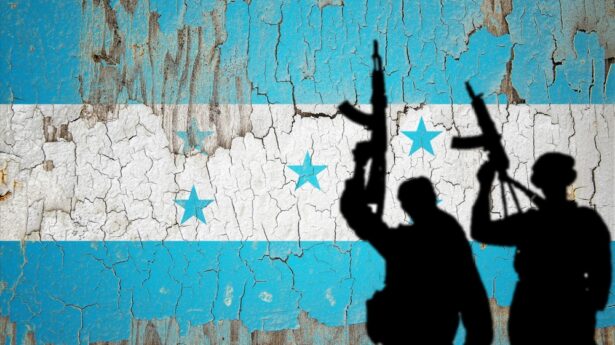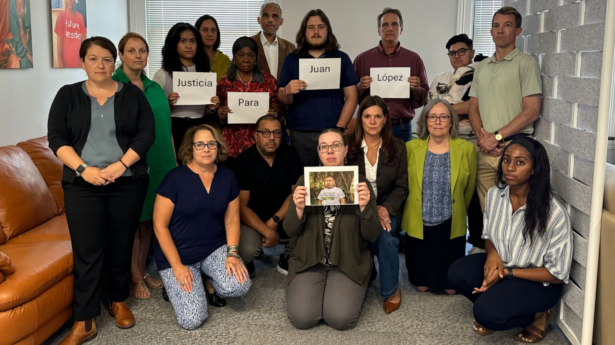The Unitarian Universalist Service Committee advances human rights through grassroots collaborations.
In Memory of Juan Antonio López: Human Rights Defender (Part 1)
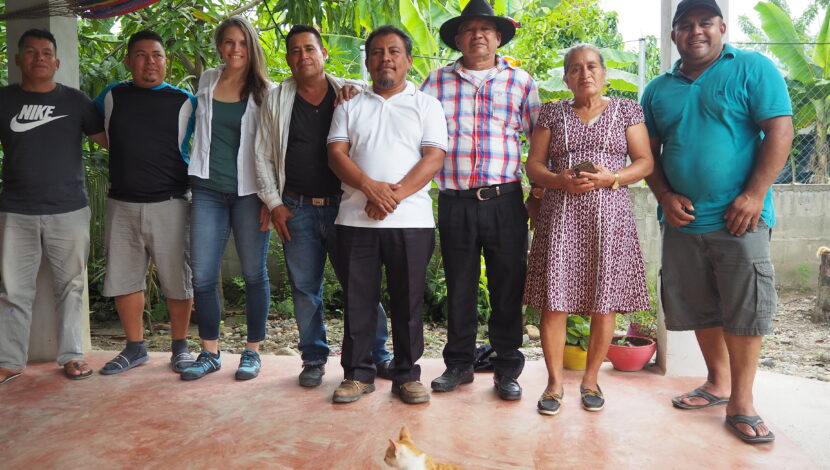
By Josh Leach on September 23, 2024
This post is part one of a two-part series honoring the legacy of a Honduran human rights activist who gave his life for his community.
Earlier this month, UUSC received the devastating news that a longtime partner in Honduras, Juan Antonio López, was killed in a brazen assassination. López—a human rights activist with a long track record of resisting powerful interests—was ambushed as he left church on Saturday, September 14. His unidentified attackers shot him to death in a hail of bullets before speeding off into the night.
López’s murder has implications for Honduran politics writ large, and the long history of U.S. interference in the region. We will discuss both in part two of this series. But today, we wanted to pause to remember his legacy as a defender of his community.
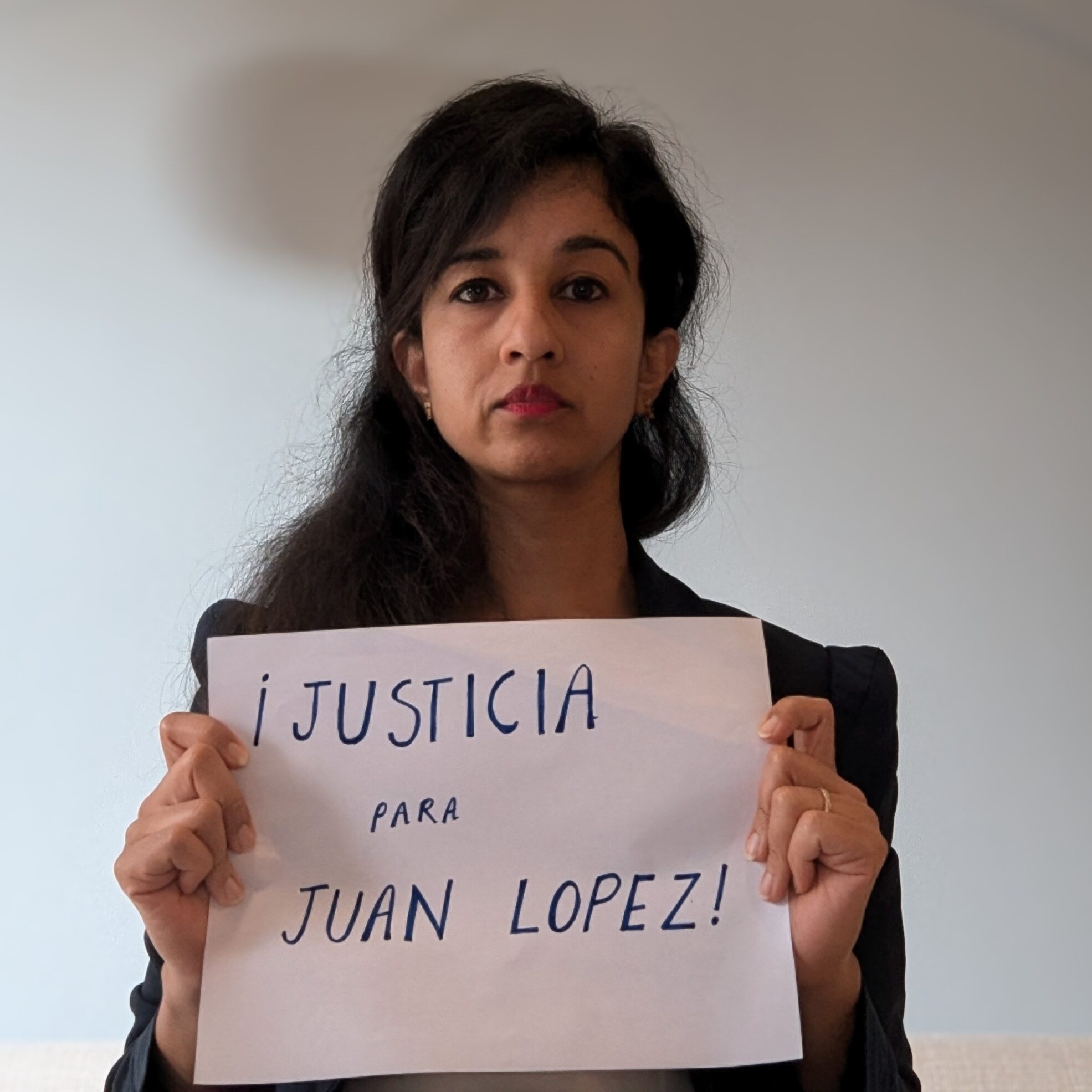
Defending Common Interests…
López was a lifelong advocate for human rights recognized internationally for his work to protect his community. UUSC knew him as an activist who risked his safety and freedom to defend the Guapinol River and the Carlos Escaleras National Park from illegal mining. For these efforts, López received the Letelier-Moffitt Human Rights Award in 2019, alongside other Guapinol Water Defenders.
López had long warned that this work placed him in the crosshairs of powerful interests. In the past two years, three other members of his organization were brutally murdered. The company behind the illegal mine in Guapinol has ties to some of the most powerful economic and political interests in Honduras. López and his colleagues already faced false arrest and imprisonment for speaking out against their activities. And earlier this year, López specifically warned that men on motorcycles were following him and spying on his home.
Due to these and other indicators, the Inter-American Commission on Human Rights (IACHR) issued precautionary measures, ordering Honduran authorities to ensure his safety. The government plainly failed to live up to these obligations. This dereliction of duty is all the more concerning in light of the fact that López was likely targeted for his criticism of members of Honduras’s ruling party (as we will explain in part two of this series).
… Even While “Clashing with Major Interests”
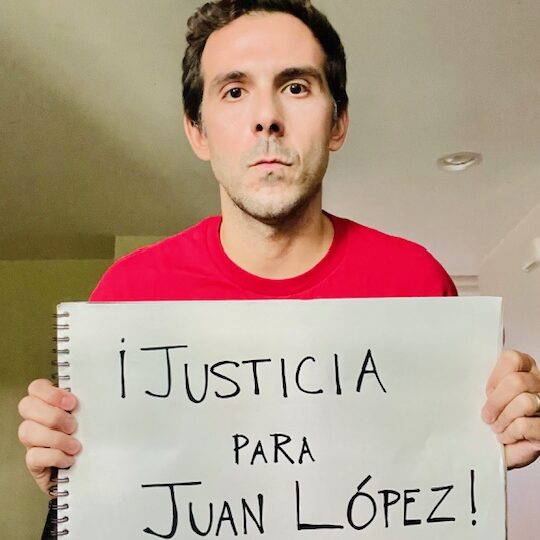
It takes an exceptional type of courage to oppose narco traffickers, organized crime, corrupt politicians, and powerful business interests all at once. López assumed this charge even though he knew it might cost him his life or his freedom. As he told reporters in 2021, “If you start defending common interests in this country, you clash with major interests.” He braved this inevitable clash because he believed some things—human rights and the shared ecological resources that sustain life—are worth defending.
Many of us cannot imagine this kind of courage. But we can honor it by ensuring that other human rights defenders do not suffer the same injustice. We therefore join our partners at the Comité Municipal De Defensa De Los Bienes Comunes y Públicos De Tocoa in demanding the following actions:
- Honduran authorities must mount an independent and thorough investigation of his murder. This means appointing officials who have no ties to the corrupt political and business interests that likely orchestrated the killing. So far, the Honduran government has failed to meet this basic condition. They have announced an investigative team, but it will be headed by the Tocoa public prosecutor. This is the same office that brought the wrongful prosecution of the Guapinol Water Defenders in the first place—creating an obvious conflict of interest.
- The Honduran government must finally act on the IACHR’s precautionary measures. This means guaranteeing the safety of the members of the Comité and other human rights and environmental defenders who are at risk in Tocoa and throughout the country.
- All illegal mining activity in Honduras must end. These extraction projects not only harm the shared resources that Juan López died to protect—they have also played a longstanding role in the violence, criminalization, and persecution facing environmental defenders. Ideally, Honduras should invite an international group backed by the OAS and UN to conduct an independent and impartial investigation, and commit to not hindering their work.
- The Honduran government must acknowledge its failure to comply with the IACHR’s precautionary measures; they must ensure justice for those involved in López’s murder at all levels; and they must cease the persecution of Carlos Orellan—a parish priest in Tocoa whom the public prosecutor’s office has targeted in recent days for speaking out about López’s murder.
In these ways—and only these ways—can the authorities secure real justice for Juan López. Consider tweeting at U.S. policymakers and Honduran government officials demanding justice for this senseless murder.
UUSC will continue to follow this case and exert our efforts to bring meaningful accountability. You can sign up to receive regular updates here.
In part two, we will discuss how the Honduran government’s complicity in the oppression of its own communities led to Juan’s demise.
Image credit: UUSC
